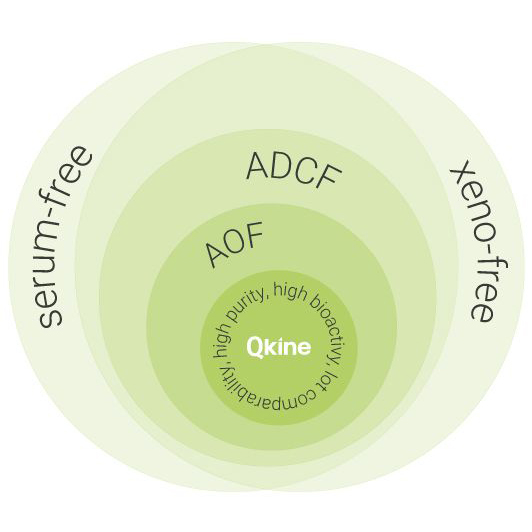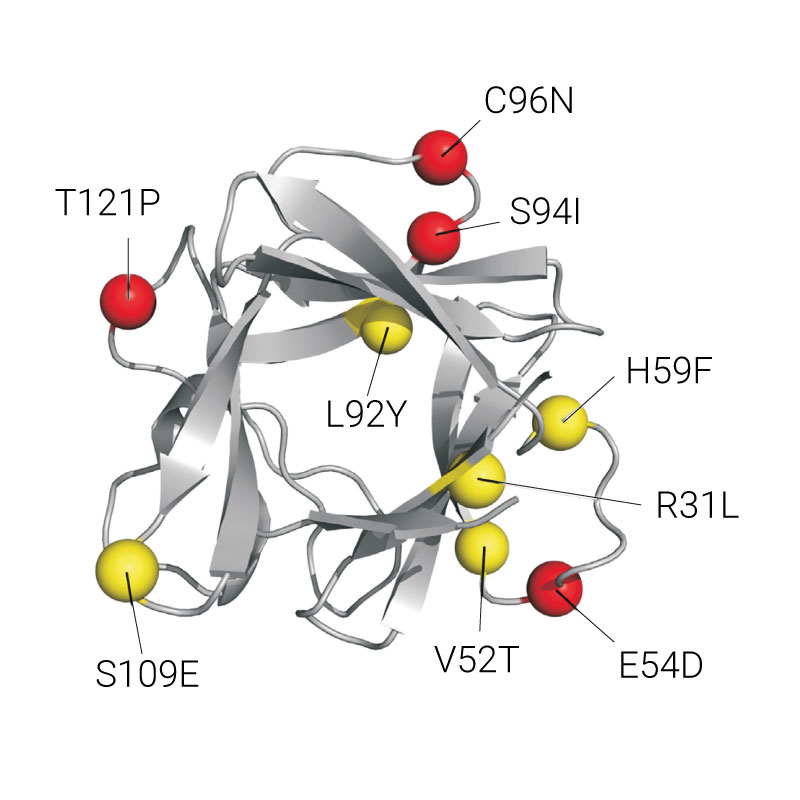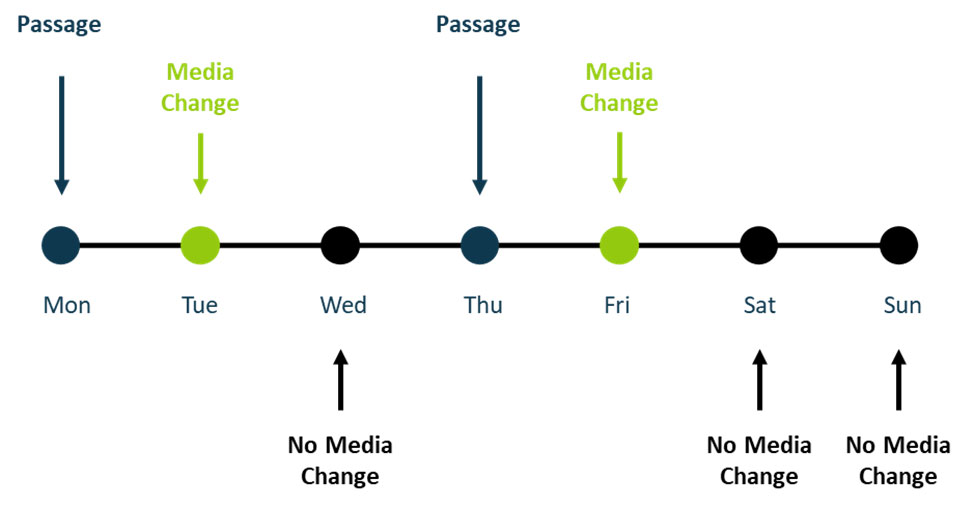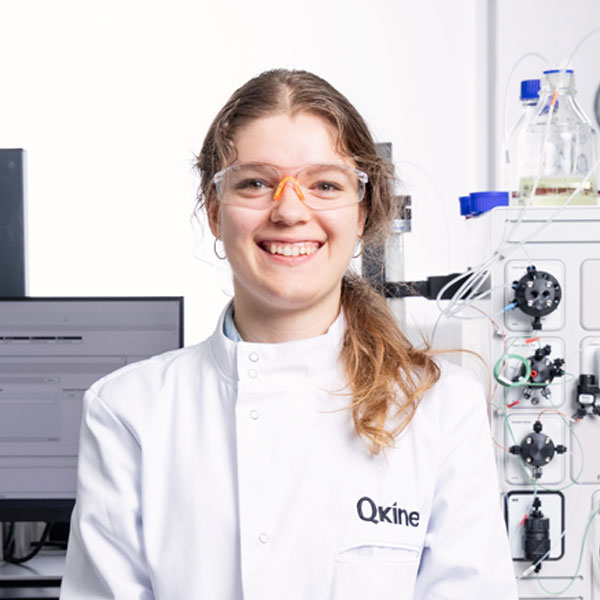Technote | TGF beta family
The first quality-matched animal origin-free TGF–b 1,2 and 3 proteins for improved stem cell culture
In mammals, distinct genes encode TGF-β1–3 proteins, which are expressed in unique, occasionally overlapping, patterns and serve different functions in vivo. TGF-beta proteins are potent signaling molecules that act primarily through the Smad 2/3-mediated pathway. They are structurally complex, with the active form of the protein existing as a disulfide-bonded dimer. Recombinant TGF-β proteins are essential reagents in most adult stem cell culture media, although it is not always clear which TGF-β is most appropriate to use.
Qkine produces high-quality, animal origin-free TGF-beta proteins with guaranteed equivalent purity, allowing comparison of all three directly to define the form that is most efficacious for a specific application.
Comparison of Qkine TGF-β1 (Qk010), TGF-β2 (Qk072) and TGF-β3 (Qk054)
- The EC50 of TGF-β1, 2, and 3 proteins are broadly comparable in a quantitative SMAD2/3 reporter assay.
- The relative EC50 values observed are consistent with existing literature reports. The effective EC50 and bioactivity of these proteins will depend on the differential expression of TGF-β receptors and co-receptors on the specific cell line of interest.
- TGF-β1 PLUS incorporates specialized protein engineering to enable its production in an animal origin-free system, without impacting its biological activity or efficacy in stem cell culture media.
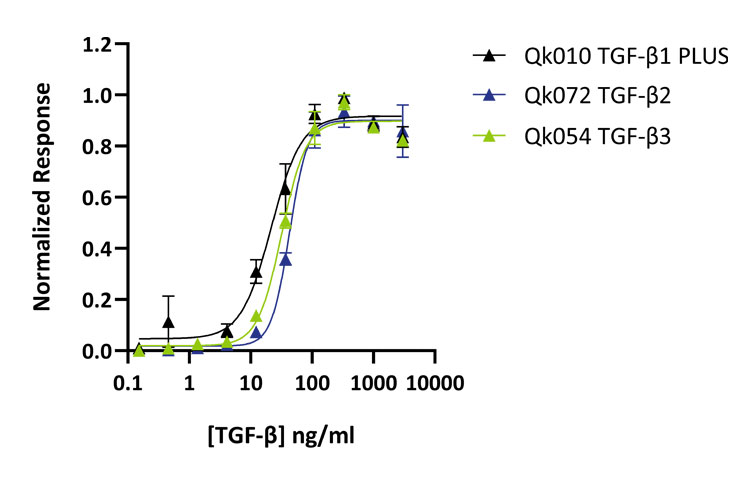
Qkine animal origin-free TGF-β1,2 and 3 had comparable EC50 values.
Transfected HEK293T cells were treated in triplicate with a serial dilution of either TGF-β1 PLUS (Qk010), TGF-β2 (Qk072) or TGF-β3 (Qk054) for 6 hours. Comparable EC50 of 0.84 pM (TGF-β1, black), 1.69 pM (TGF-β2, blue) and 1.26 pM (TGF-β3, green) were observed.
Using animal origin-free TGF-β proteins removes the uncertainty stemming from co-purification of related proteins, such as other TGF-β isoforms, BMPs, and Activins, which are naturally secreted by mammalian protein expression systems like CHO, HEK, and NSO. This is particularly significant for other TGF beta family proteins, which may signal with femtomolar EC50 values.
Qkine provides a reliable source of high-quality animal origin-free TGF-β1-3 for reproducible culture and differentiation of adult stem cells.
